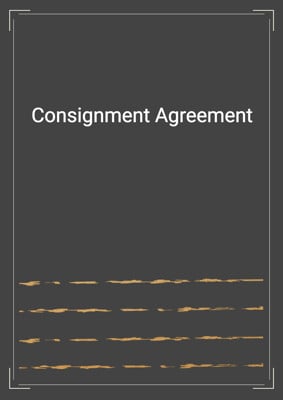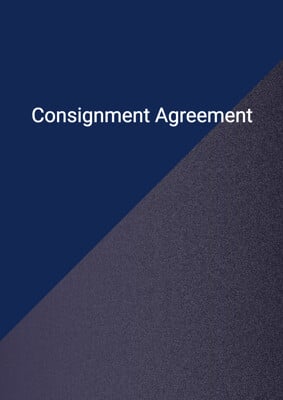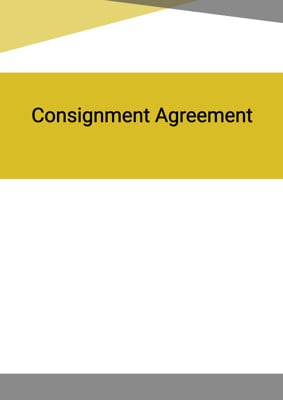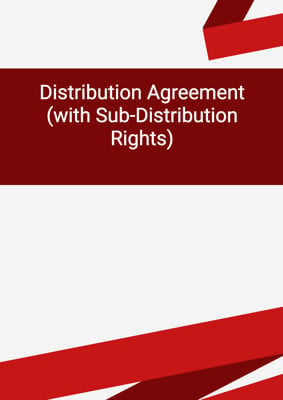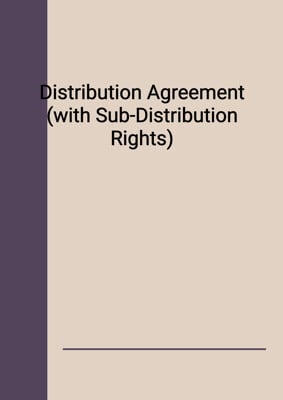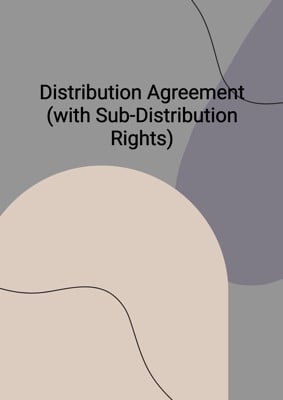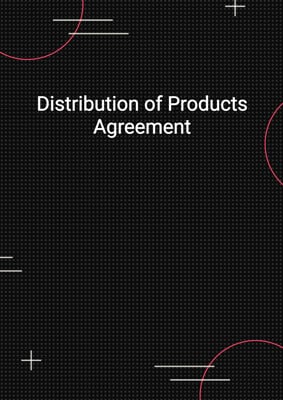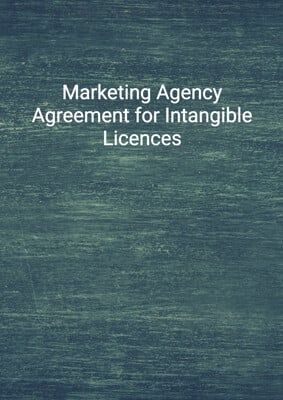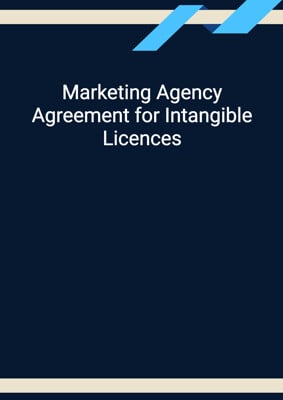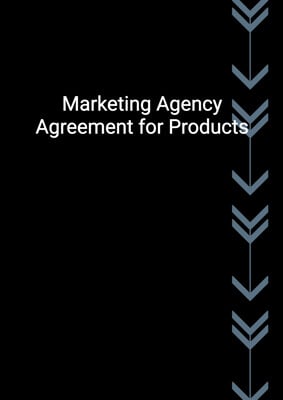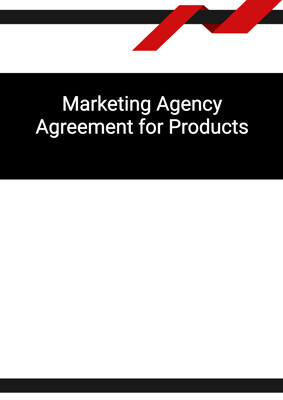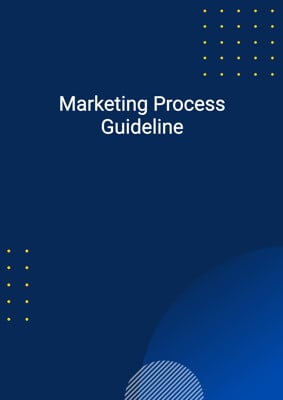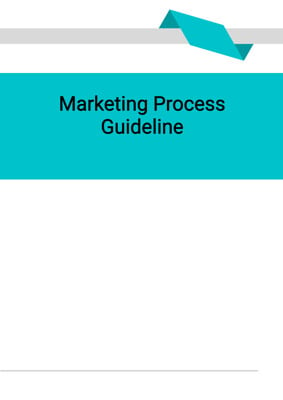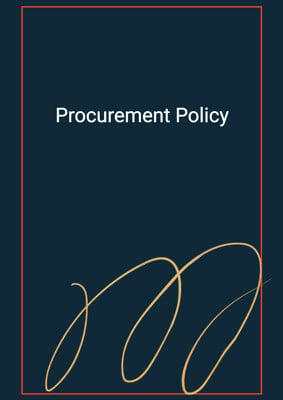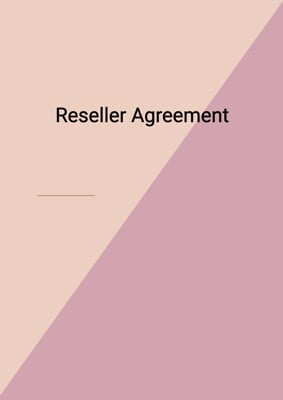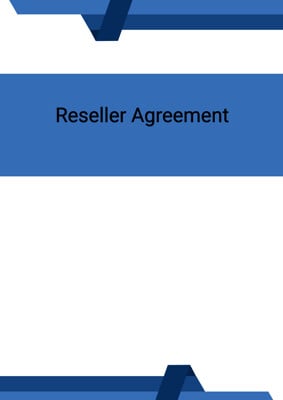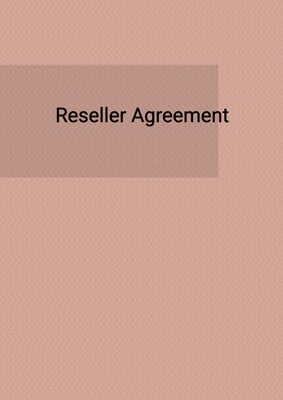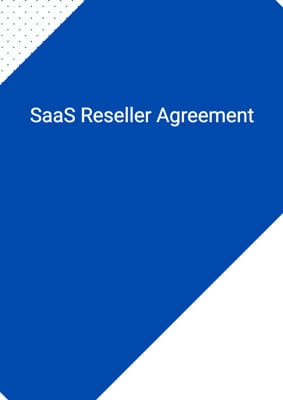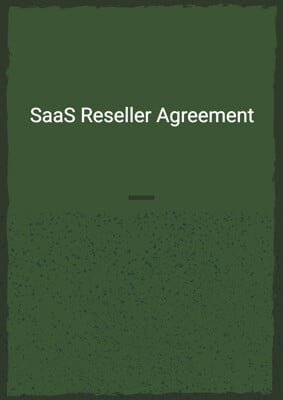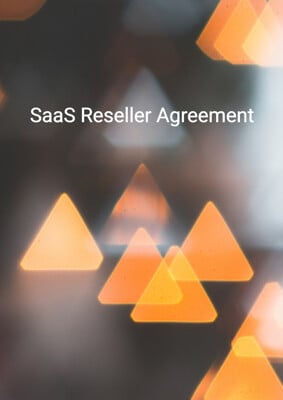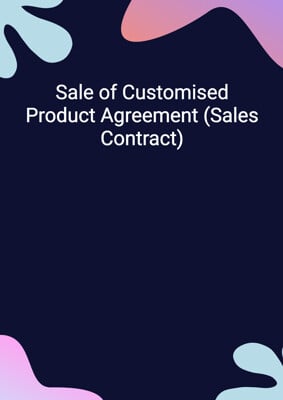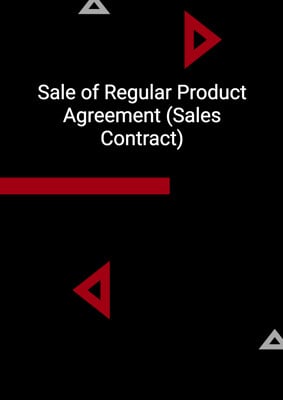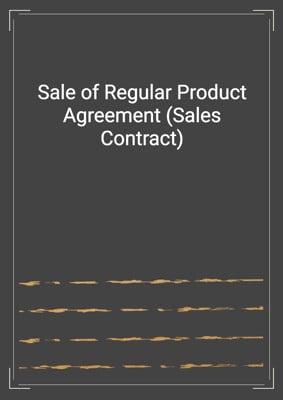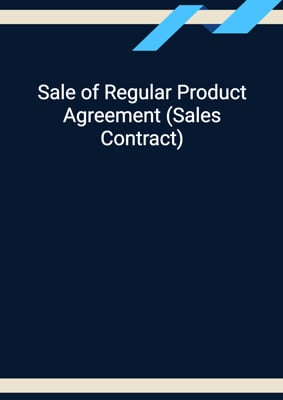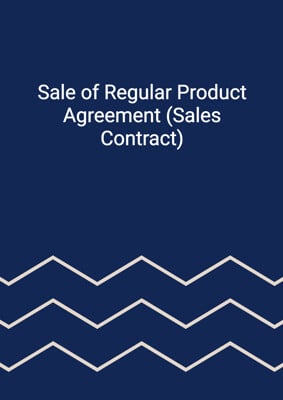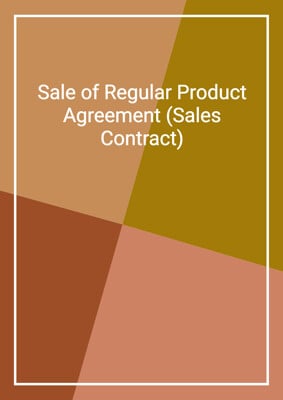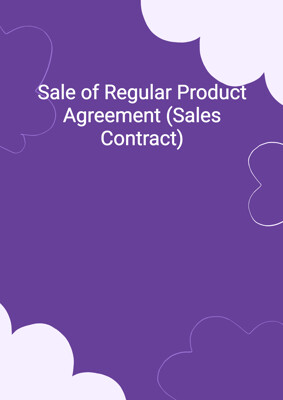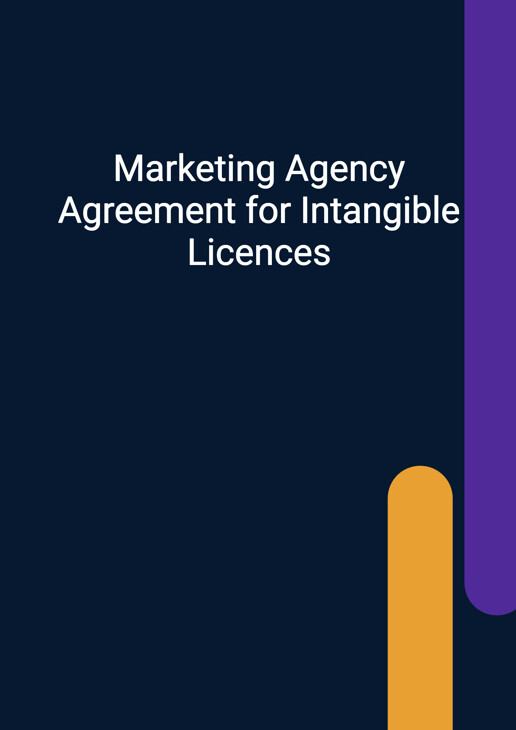
Marketing Agency Agreement for Intangible Licences
Agent
This marketing agreement is suitable for intellectual property owner (e.g. software license) appointing marketing agent into new territory. The Agent will be paid a commission as a % the Sales Amount instead of buying on own account. The Agent can also be a sales representative. This agreement is drafted in favour of the Agent.
How to Tailor the Document for Your Need?
01
Create Document
Fill in the details of the parties. You can click the "Fill with Member’s Information" button to complete it with information saved to your account.
02
Fill Information
Please fill in any additional information by following the step-by-step guide on the left hand side of the preview document and click the "Next" button.
03
Get Document
When you are done, click the "Get Document" button and you can download the document in Word or PDF format.
04
Review Document
Please get all parties to review the document carefully and make any final modifications to ensure that the details are correct before signing the document.
Document Preview
Document Description
The Marketing Agency Agreement for Intangible Licenses is a document that establishes a contractual relationship between a development and management company (referred to as the Principal) and a marketing agent (referred to as the Agent). The agreement outlines the terms and conditions under which the Agent will act as the Principal's representative in promoting and selling the Principal's intellectual property (IP) solutions in a specific territory.
The importance of this document lies in its ability to clearly define the roles and responsibilities of both parties, ensuring a mutually beneficial and legally binding agreement. By entering into this agreement, the Principal can expand its market reach and increase sales, while the Agent gains the opportunity to represent and promote high-quality IP solutions.
The document is divided into several sections, each serving a specific purpose:
1. Interpretation: This section provides definitions for key terms used throughout the agreement, ensuring clarity and understanding.
2. Appointment as Agent: This section outlines the Principal's appointment of the Agent as its exclusive marketing agent and nonexclusive sales representative in the specified territory. It also grants the Agent the right of first refusal for other territories within the region.
3. Marketing Agent's Obligations: This section details the Agent's obligations as the Principal's exclusive marketing agent in the territory. The Agent is responsible for managing, supervising, and facilitating the promotion and sale of the Principal's IP solutions. This includes evaluating the market, proposing revenue targets, promoting the products, providing pricing support, monitoring customer satisfaction, and pursuing sales leads.
4. Sales Representative's Obligations: This section outlines the Agent's obligations as the Principal's nonexclusive sales representative in the territory. The Agent is responsible for promoting and soliciting sales of the Principal's IP solutions, generating sales leads, negotiating contracts, confirming customer financial status, and maintaining positive customer relationships.
5. Miscellaneous Agent Obligations: This section covers additional obligations of the Agent, including keeping accurate records, complying with applicable laws and regulations, and maintaining confidentiality.
6. Principal's Obligations: This section outlines the Principal's obligations, including processing sales orders, compensating the Agent, providing promotional and sales material, offering sales assistance and training, and making the principal products available according to program guidelines.
7. Terms of Ordering: This section explains the process for handling orders, including the forwarding of orders, pricing and terms, and the responsibilities of both parties.
8. Compensation: This section specifies the commission structure and payment terms for the Agent, based on the sales amount actually paid by customers to the Principal.
9. Term and Termination: This section defines the initial term of the agreement, termination conditions, and the duties of both parties upon termination.
10. Warranties and Representations: This section includes the Principal's representations and warranties regarding its rights, title, and licenses, as well as its commitment to perform its obligations in a professional manner.
11. Confidentiality, Non-Compete, and Non-Solicitation: This section addresses the handling of confidential information, ownership of intellectual property, and restrictions on competition and solicitation.
12. Intellectual Property: This section clarifies that the Agent does not acquire any ownership or rights to the Principal's intellectual property and must keep it confidential.
13. Grant of Right to Use Trademarks: This section grants the Agent a limited right to use the Principal's trademarks for the purpose of referring to and advertising itself as a marketing agent and sales representative.
14. Indemnity: This section states that the Principal will defend, indemnify, and hold harmless the Agent from any loss, damage, or expense incurred as a result of the Principal's performance or breach of the agreement.
15. Notices: This section specifies the requirements for giving notice under the agreement, including methods of delivery and addresses of the parties.
16. Insurance (if applicable): This section outlines the insurance requirements for the Agent, including the type and coverage limits.
17. No Rights under Contracts for Third Parties: This section clarifies that third parties do not have the right to enforce any terms of the agreement.
18. Miscellaneous Provisions: This section covers various provisions, including force majeure, the ability of the Principal to perform obligations through its subsidiaries, restrictions on assignment and sub-agents, and the entire agreement between the parties.
20. Governing Law: This section specifies the governing law and jurisdiction for any disputes arising from the agreement.
The Marketing Agency Agreement for Intangible Licenses is a comprehensive document that covers all aspects of the relationship between the Principal and the Agent. By clearly defining the rights, obligations, and expectations of both parties, this agreement ensures a smooth and mutually beneficial partnership.
How to use this document?
1. Review the entire agreement to understand the terms and conditions governing the relationship between the Principal and the Agent.
2. Familiarize yourself with the definitions provided in the Interpretation section to ensure a clear understanding of key terms used throughout the agreement.
3. Understand the appointment of the Agent as the Principal's exclusive marketing agent and nonexclusive sales representative in the specified territory. Take note of the right of first refusal for other territories within the region.
4. Review the obligations of the Agent as the exclusive marketing agent, including evaluating the market, proposing revenue targets, promoting the products, providing pricing support, monitoring customer satisfaction, and pursuing sales leads.
5. Understand the obligations of the Agent as the nonexclusive sales representative, including promoting and soliciting sales, generating sales leads, negotiating contracts, confirming customer financial status, and maintaining positive customer relationships.
6. Take note of the miscellaneous obligations of the Agent, such as keeping accurate records, complying with laws and regulations, and maintaining confidentiality.
7. Understand the obligations of the Principal, including processing sales orders, compensating the Agent, providing promotional and sales material, offering sales assistance and training, and making the principal products available according to program guidelines.
8. Familiarize yourself with the terms of ordering, including the process for handling orders, pricing, and terms.
9. Review the commission structure and payment terms for the Agent to ensure a clear understanding of the compensation arrangement.
10. Understand the term and termination provisions, including the initial term of the agreement, termination conditions, and the duties of both parties upon termination.
11. Take note of the warranties and representations made by the Principal regarding its rights, title, and licenses.
12. Understand the provisions related to confidentiality, non-compete, and non-solicitation, including the handling of confidential information and restrictions on competition and solicitation.
13. Familiarize yourself with the provisions regarding intellectual property, including the Agent's limited rights and obligations to keep the Principal's intellectual property confidential.
14. Understand the grant of right to use trademarks and the limitations on the Agent's use of the Principal's trademarks.
15. Take note of the indemnity provision, which states that the Principal will defend, indemnify, and hold harmless the Agent from any loss, damage, or expense incurred as a result of the Principal's performance or breach of the agreement.
16. Understand the requirements for giving notice under the agreement, including the methods of delivery and addresses of the parties.
17. If applicable, review the insurance requirements for the Agent and ensure compliance with the specified coverage limits.
18. Take note that third parties do not have the right to enforce any terms of the agreement.
19. Familiarize yourself with the miscellaneous provisions, including force majeure, the ability of the Principal to perform obligations through its subsidiaries, restrictions on assignment and sub-agents, and the entire agreement between the parties.
20. Understand the governing law and jurisdiction specified for any disputes arising from the agreement.
This guidance provides a summary of the key points and steps to follow when using the Marketing Agency Agreement for Intangible Licenses. It is important to refer to the actual agreement for the complete and accurate details of each section and provision.
Not the right document?
Don’t worry, we have thousands of documents for you to choose from:

